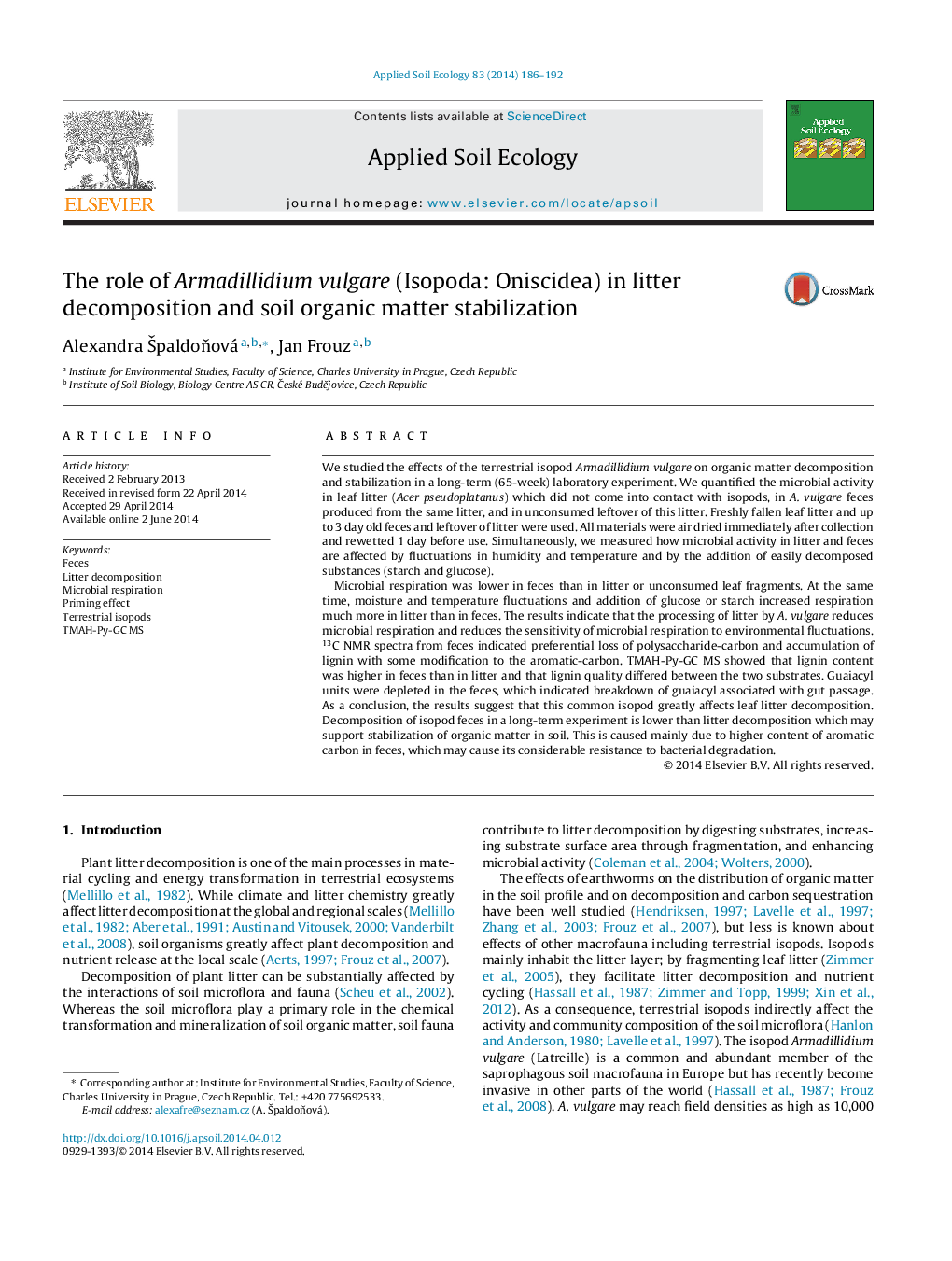| کد مقاله | کد نشریه | سال انتشار | مقاله انگلیسی | نسخه تمام متن |
|---|---|---|---|---|
| 4382216 | 1617800 | 2014 | 7 صفحه PDF | دانلود رایگان |

• Armadillidium vulgare increases organic matter decomposition in the short term.
• However in the long term the decomposition is slowed down.
• A. vulgare affects both leaf litter decomposition and organic matter chemistry.
We studied the effects of the terrestrial isopod Armadillidium vulgare on organic matter decomposition and stabilization in a long-term (65-week) laboratory experiment. We quantified the microbial activity in leaf litter (Acer pseudoplatanus) which did not come into contact with isopods, in A. vulgare feces produced from the same litter, and in unconsumed leftover of this litter. Freshly fallen leaf litter and up to 3 day old feces and leftover of litter were used. All materials were air dried immediately after collection and rewetted 1 day before use. Simultaneously, we measured how microbial activity in litter and feces are affected by fluctuations in humidity and temperature and by the addition of easily decomposed substances (starch and glucose).Microbial respiration was lower in feces than in litter or unconsumed leaf fragments. At the same time, moisture and temperature fluctuations and addition of glucose or starch increased respiration much more in litter than in feces. The results indicate that the processing of litter by A. vulgare reduces microbial respiration and reduces the sensitivity of microbial respiration to environmental fluctuations. 13C NMR spectra from feces indicated preferential loss of polysaccharide-carbon and accumulation of lignin with some modification to the aromatic-carbon. TMAH-Py-GC MS showed that lignin content was higher in feces than in litter and that lignin quality differed between the two substrates. Guaiacyl units were depleted in the feces, which indicated breakdown of guaiacyl associated with gut passage. As a conclusion, the results suggest that this common isopod greatly affects leaf litter decomposition. Decomposition of isopod feces in a long-term experiment is lower than litter decomposition which may support stabilization of organic matter in soil. This is caused mainly due to higher content of aromatic carbon in feces, which may cause its considerable resistance to bacterial degradation.
Journal: Applied Soil Ecology - Volume 83, November 2014, Pages 186–192